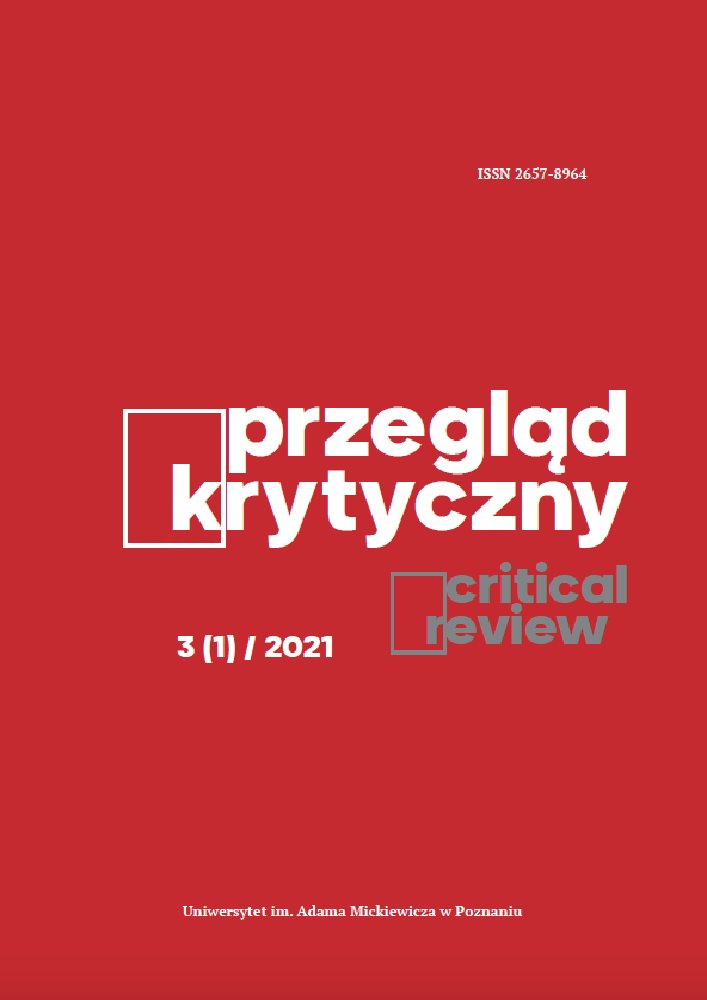Abstrakt
Apart from originating contemporary norms and cultures among its viewers, Nigerian television series portray new and emerging constructions and practices that the populace is able to identify with. Recently, one television series that has become popular in Nigeria is Jenifa’s Diary. Its popularity stems from its incorporation of the Nigerian English, the British English and the indigenous Yoruba language, as well as the antics and codification(s) of the eponymous character, Jennifer. Her utility of a distinctive English language which deviates from the Nigerian Pidgin and the British English, has made this series popular among viewers. This has created a new linguistic culture and also appropriated what I term the Jenifanlingua franca. It is not a rarity to see children, teenagers and adults communicate in the same manner as Jennifer. Against this backdrop, this paper examines Funke Akindele-Bello’s television series Jenifa’s Diary as Nigerian social reality and a medium for cultural propagation. This study examines socio-cultural nuances in Jenifas Diary. The research is qualitative as it utilises the literary and content analysis methods. The study reveals that Jenifa’s Diary captures the plight of the African been to in the Western world and that the television serial is rich with its incorporation of the Nigerian Pidgin English, the British English and some indigenous Nigerian languages such as the Yoruba language, as well as the antics and codification(s) of the eponymous character, Jennifer. While Jenifa’s Diary and other Nigerian television series are products of social realities, they also create spaces for new socio-cultural landscapes. The study has been able to explain the imperative of television series on the Nigerian socio-cultural space. Cineastes should produce television serials that will educate and stimulate the populace towards becoming better people in the society.
Bibliografia
Abumere, Perry. 2016. The resurrection of Nigerian TV series. Retrieve October 20, 2020 (http://www.pulse.ng/entertainment/movies/pulse-opinion-the-resurrection-of-nigerian-tv-series-id5866321.html).
Ayakoroma, Barclays. 2014. Trends in Nollywood: A study of selected genres. Ibadan: Kraft Books Ltd.
Foucault, Michel. 2016. Social theory-Rewired. London: Routledge.
Haynes, Jonathan and Onookome Okome. 1997. “Evolving Popular Media: Nigerian Video Films.” Pp. 21-44 in Nigerian Video Films, edited by J. Haynes. Jos: Nigerian Film Corporation.
Larkin, Brian. 1997. “Hausa Dramas and the Rise of Video Culture in Nigeria.” Pp. 105-125 in Nigerian Video Films, edited by J. Haynes. Jos: Nigerian Film Corporation.
Ogundele, Wole. 1997. “From Folk Opera to Soap Opera: Improvisations and Transformations in Yoruba Popular Theatre”. Pp. 45-59 in Nigerian Video Films, edited by J. Haynes. Jos: Nigerian Film Corporation.
Omatsola, Dan. 1997. Televisual film production in Nigeria: A critical source book. Warri: About Research Publishers.
Okpadah, Stephen. 2016. “A Study of tales by moonlight of the Nigerian Television Authority.” Pp. 87-100 in Literature and Society: Prospects and Challenges, edited by P. Raj. New Delhi: Authors Press.
Okam, Chinyere and Abel Idebe. 2020. “Agency and Child Participation as Determinants of Social Capital in Gombe Children Theatre’s Project.” Comprehensive Child Studies 2(3): 170-177. Doi: 10.33910/2687-0223-2020-2-3-170-177.
RELAXNOMICA. 2016. Nigeria: Financial Derivatives Company Ltd. Retrieve April 4, 2021 (http://fdcng.com/wp-content/uploads/2016/11/Relaxnomiks-October-2016-Edition.pdf).
Soyinka, Wole. 1994. “Rites of the Theatre.” Pp. 70-81 in The Return of Shango: The Theatre of Duro Ladipo, edited by U. Beier. Bayreuth: University of Bayreuth.
Vivian, John. 1991. The media of mass communication. Boston: Pearson Publishers.
Licencja
W przypadku zakwalifikowania tekstu do druku Autor wyraża zgodę na przekazanie praw autorskich do tego artykułu wydawcy (zob. Polityka open access). Autor artykułu zachowuje prawo wykorzystania treści opublikowanego przez czasopismo artykułu w dalszej pracy naukowej i popularyzatorskiej pod warunkiem wskazania źródła publikacji.


